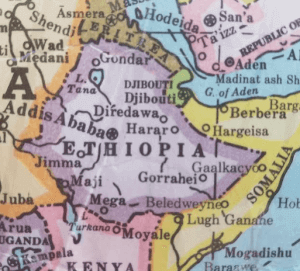by NEWS DESK
According to the United Nations Office for the Coordination of Humanitarian Affairs (OCHA), a dengue fever outbreak has been reported in the Afar Region in northeastern Ethiopia.
 Over 1,000 suspected dengue cases in Mile and Adar have been estimated as of 28 April.
Over 1,000 suspected dengue cases in Mile and Adar have been estimated as of 28 April.
The region is already grappling to control the spread of malaria amidst ongoing floods and stagnant water, which become breeding grounds for mosquitos.
The situation remains a public concern amidst weak coordination and surveillance systems and non-functional response mechanisms, weak health systems including shortage of drugs, medical supplies and spray chemicals, as well as shortage of health workers (having been affected by Dengue), insufficient logistics and the need for stepped up interventions including on community awareness.
Dengue is a viral infection transmitted by the bite of an infected mosquito. There are four closely related but antigenically different serotypes of the virus that can cause dengue (DEN1, DEN 2, DEN 3, DEN 4).
Dengue Fever (DF) – marked by an onset of sudden high fever, severe headache, pain behind the eyes, and pain in muscles and joints. Some may also have a rash and varying degree of bleeding from various parts of the body (including nose, mouth and gums or skin bruising).Dengue has a wide spectrum of infection outcome (asymptomatic to symptomatic). Symptomatic illness can vary from dengue fever (DF) to the more serious dengue hemorrhagic fever (DHF).
Dengue Hemorrhagic Fever (DHF) – is a more severe form, seen only in a small proportion of those infected. DHF is a stereotypic illness characterized by 3 phases; febrile phase with high continuous fever usually lasting for less than 7 days; critical phase (plasma leaking) lasting 1-2 days usually apparent when fever comes down, leading to shock if not detected and treated early; convalescence phase lasting 2-5 days with improvement of appetite, bradycardia (slow heart rate), convalescent rash (white patches in red background), often accompanied by generalized itching (more intense in palms and soles), and diuresis (increase urine output).
Dengue Shock Syndrome (DSS) — Shock syndrome is a dangerous complication of dengue infection and is associated with high mortality. Severe dengue occurs as a result of secondary infection with a different virus serotype. Increased vascular permeability, together with myocardial dysfunction and dehydration, contribute to the development of shock, with resultant multiorgan failure.
